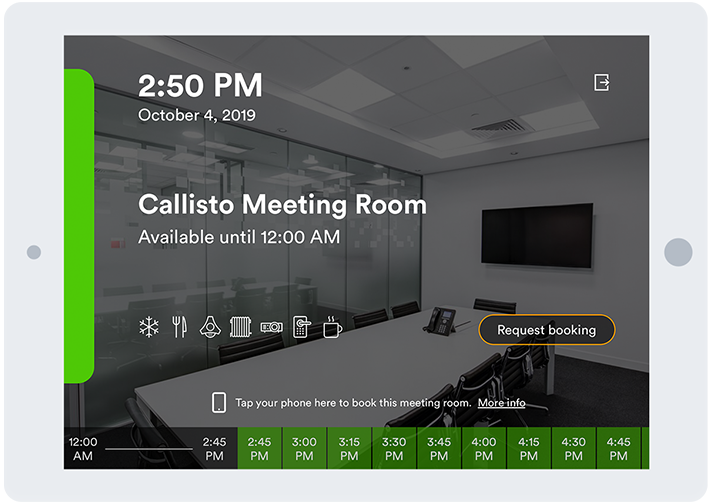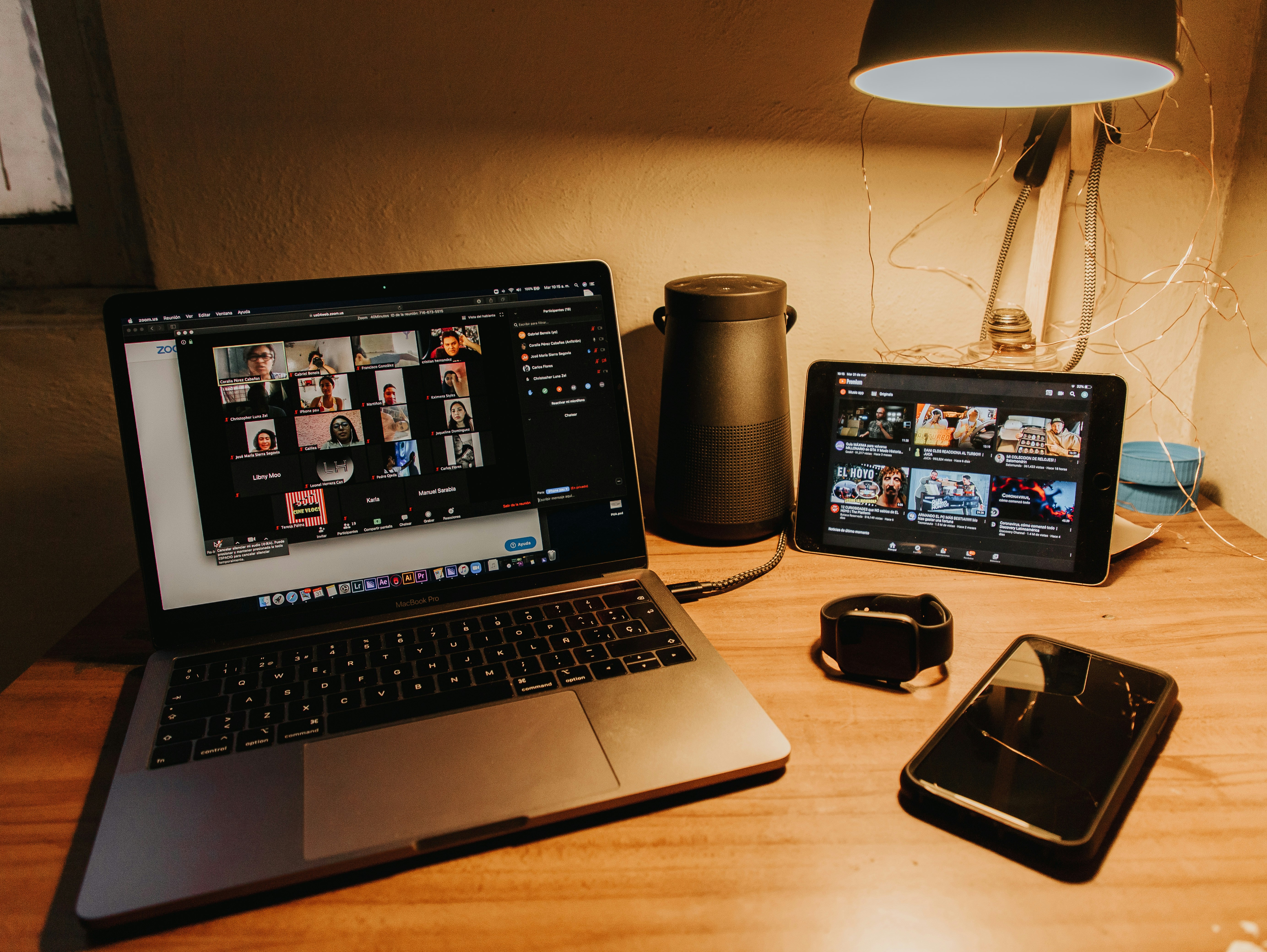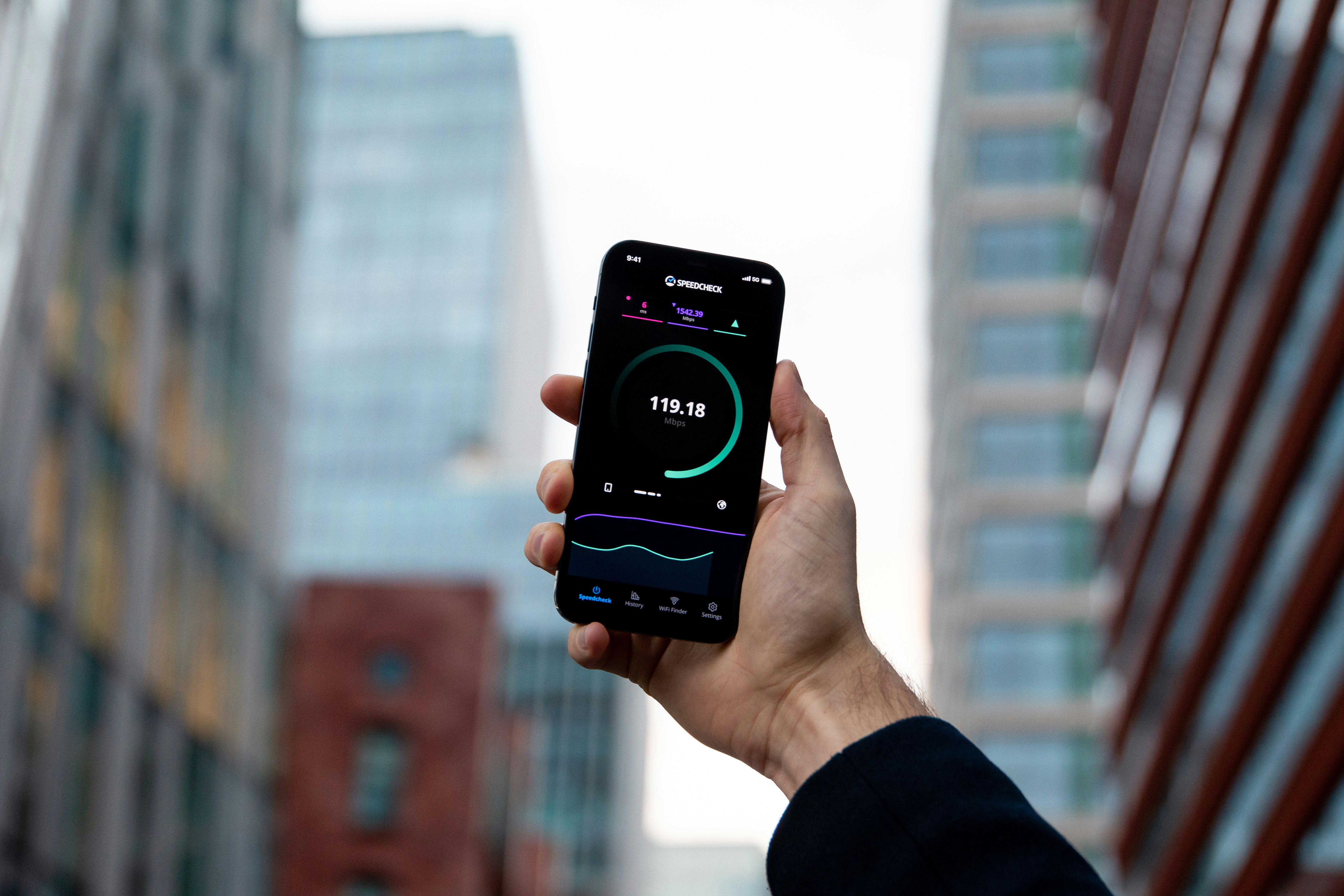Top 5 Must-Have Meeting Room Technologies for Your Coworking Space
The office meeting room is experiencing a renaissance right now.
Once seen as - dare we say it - a somewhat soulless realm, the meeting room has evolved into a flexible, dynamic and attractive proposition for employers and employees alike. But some are better designed and fitted than others.
In the era of hybrid work, meeting rooms provide a space in which teams can reunite to explore ideas and make important decisions. And they’re not just for traditional meetings: they can also host workshops, pitches, seminars and exhibitions.
Meeting rooms are valuable revenue generators for coworking operators; they’re often rented to non-member individuals and organisations, such as the business owner who works from home and requires a satellite space for a couple of hours.
The role of meeting room technology
While a meeting room’s size, style and decor are important for setting the right tone, technology is crucial when it comes to inclusivity, accessibility and functionality.
Today’s meeting rooms must be equipped with the technology required to facilitate seamless collaboration between in-house and remote workers. For meeting rooms in shared spaces, it’s even more important for technology to be shareable and intuitive.
Once the domain of very basic communication tools like the humble telephone, meeting rooms have grown to encompass high-tech integrated systems that aid a range of collaborative tasks and activities.
Security is also more advanced.
Features to keep in mind when searching for solutions include end-to-end encryption for video calls, multi-factor authentication for room access, and privacy filters. At a time of unprecedented data sharing, it’s important for any sensitive content in meetings to be protected from potentially prying eyes.
But before we get ahead of ourselves, let’s run through five must-have meeting room technologies for meeting rooms in the coworking and shared spaces of today.
1. Smart room booking system
Before the advent of smart technology, meeting room scheduling was organised using paper diaries or simple online calendars - a time-consuming endeavour for busy office managers.
These methods were more vulnerable to double bookings, while last-minute cancellations and no-shows meant that meeting rooms often went underutilised.
Today’s more advanced meeting room booking systems work on mobile or web interfaces, and are designed - and regularly updated - with integration in mind.
Nexudus’ meeting room software permits members to book meeting rooms in a way that suits them. They can reserve a spot through the coworking space’s office portal, for instance. Or they can book on a tablet positioned outside the meeting room itself.
Both of these methods are contactless, making the workspace manager’s working life a whole lot easier.
Some advanced systems also have analytics capabilities to track room usage and identify patterns for better space management. For example, with Nexudus, coworking operators can identify gaps in meeting room usage and use this data as a springboard for growth ideas. 20% off meeting rooms on a Friday, anyone?

2. Video conferencing system
A video conferencing system connects dispersed teams and clients.
High-definition video and audio are often preferable, as is the ability to integrate with key platforms like Zoom, Google Meet and Microsoft Teams.
An HD camera will ensure top-notch video, while quality microphones and speakers will provide participants with almost crystal-clear audio. It’s important for any system to have screen-sharing capabilities that allow participants to share content with ease.
Video conferencing key benefits:
- Facilitates remote meetings and collaboration.
- Essential for hybrid work environments.
- Enables connection with clients and teams across the globe.
Like most modern technologies, video conferencing continues to evolve. Currently, AI is facilitating automatic speaker tracking, where the system is able - through voice direction and volume - to hone in on the person speaking.
Features like this are closing the gap between in-person and remote meetings by making it easier for participants to track the conversation. Some advanced systems can even track multiple speakers, switching between them as they speak.
VR has also entered the meeting room. You’ve probably already heard of the companies offering immersive VR meeting room environments that mimic real life.

3. Digital whiteboard
Modern digital whiteboards enable users to write, draw, and annotate on a digital surface, and allow for the real-time sharing of content across different locations.
They are widely used in educational settings such as schools and universities, and workplaces are also getting “on board” (excuse the pun).
Digital whiteboards can integrate with cloud services, allowing users to save and share notes with team members, clients and other stakeholders. Aside from the collaborative benefits, it reduces the reliance on physical materials in meetings.
Digital whiteboard key benefits:
- Encourages active participation in meetings.
- Makes it easy to share and edit ideas.
- Reduces paperwork and stationery.

4. Smart lighting and climate control
Smart lighting and climate control features are must-haves for any coworking space taking steps to boost its green credentials. This technology automates changes in light and temperature depending on the occupancy of the room, the time of day, and other predetermined variables.
Customising the meeting room environment in this way helps meeting room operators cater to the individual needs of each meeting. It can also result in a reduction in operating costs, as lighting and heating are only used when necessary.
Smart systems key features:
- Automated lighting changes brightness based on time of day and occupancy.
- Temperature control ensures optimal comfort levels and reduces wastage.
- Energy monitoring tracks usage to optimise energy consumption.

5. High-speed Wi-Fi and network infrastructure
This last one is pretty obvious, but worth repeating because it underpins everything. If people are using your meeting rooms to share files or deliver presentations, having a top-notch internet connection will allow them to do it seamlessly.
The higher the Mbps, the faster the internet is.
People often bring multiple devices to meetings nowadays, including laptops, tablets and smartphones. High-speed Wi-Fi and network infrastructure is able to accommodate all of these without compromising performance. It can also help to facilitate advanced security measures designed to protect data.
Fitting your coworking space’s meeting rooms with the best technologies is going to contribute to the quality of the member experience, and it’ll support productivity in meetings for years to come. When deciding which technology to opt for, always keep flexibility, usability and compatibility in mind; like the rest of your space, your meeting rooms must meet the diverse needs of your coworking members.

Related stories
Why a CRM is Essential for Coworking Spaces (And How to Choose the Best One)
A customer relationship management platform (CRM for short) is what organisations use to manage relationships and interactions with both existing and potential customers. Its primary function is to streamline operations and communications to ensure a smooth customer - and employee - experience, while improving profitability.
How the Right Coworking Software Can Transform Your Coworking Space
We all know that technology solutions are imperative to the day-to-day running of your coworking space, but the right coworking software can take it to the next level. It has the power to transform your coworking space into a highly profitable business, all while building a vibrant and engaged community. Let’s explore how the right tools can transform your coworking space.
New in Nexudus: Reduce no-shows & improve team bookings in your coworking space.
Meeting rooms are at the heart of collaboration in coworking spaces. Whether it's a brainstorming session, a client meeting, or a team catch-up, having a simple and efficient way to book and manage meeting rooms makes all the difference. But let’s be honest—there’s always room to improve the experience for your members.
Unlock New Revenue Streams with Our New Virtual Offices Module
The popularity of remote and hybrid working has prompted many organisations to rethink the way they utilise office space. Many have swapped their large, static HQs for more flexible satellite solutions that can accommodate a disparate workforce.
ViDA Compliance Guide: 8 Essential Steps for Coworking Spaces in the EU
Now that 2025 has arrived, the European Union's VAT in the Digital Age (ViDA) initiative is becoming a key topic for coworking spaces operating in the EU. But don’t panic—ViDA will be introduced gradually, with key changes taking effect from 2028. This major VAT reform aims to modernize tax reporting, combat fraud, and streamline compliance through mandatory e-invoicing and real-time digital VAT reporting for certain transactions.
Harnessing AI to Help Coworking Operators Understand Their Communities Better
After more than twelve years in the coworking industry, we’ve seen the movement evolve at an incredible pace, especially in recent years. Spaces have grown larger, making it harder for operators to truly connect with their communities. At the same time, expectations for higher service standards and increasing competition mean that creating tailored experiences and fostering long-term member engagement is more important than ever.
What Is Workplace Management and Why Does It Matter?
There has always been a need for workplace management – the process of organising and optimising physical spaces, resources, and operations to support people’s needs. But, as 28% of UK working adults were reported to work in a hybrid capacity last autumn (by the Office for National Statistics), the question of ‘why workplace management matters’ is more critical than ever. Let’s look at the workplace management benefits for your operations.
Exploring Coworking Software in 2025: 10 Key Nexudus Features
From automating daily processes to supporting your team in building a thriving community and boosting revenue for your business – coworking technology couldn’t be more impactful for flexible workspace operations. But with so many tools available, selecting the right tech stack for your coworking business can be overwhelming.
Unlock Your Team’s Potential with the New Nexudus Academy
As the coworking industry continues to grow and evolve, so does the Nexudus platform. We always strive to develop new features and enhance existing ones to make your job easier. When new features are introduced, there is a need to learn how to best leverage them for your space.
From Startup to AI-Powered Coworking Software Company: The Nexudus Journey
When we first launched Nexudus, we were a small, tightly-knit team wearing multiple hats—from sales to implementation and customer support. In those early days, if a customer had a question, there was a good chance that the person answering it was also the one who had built that particular feature.

